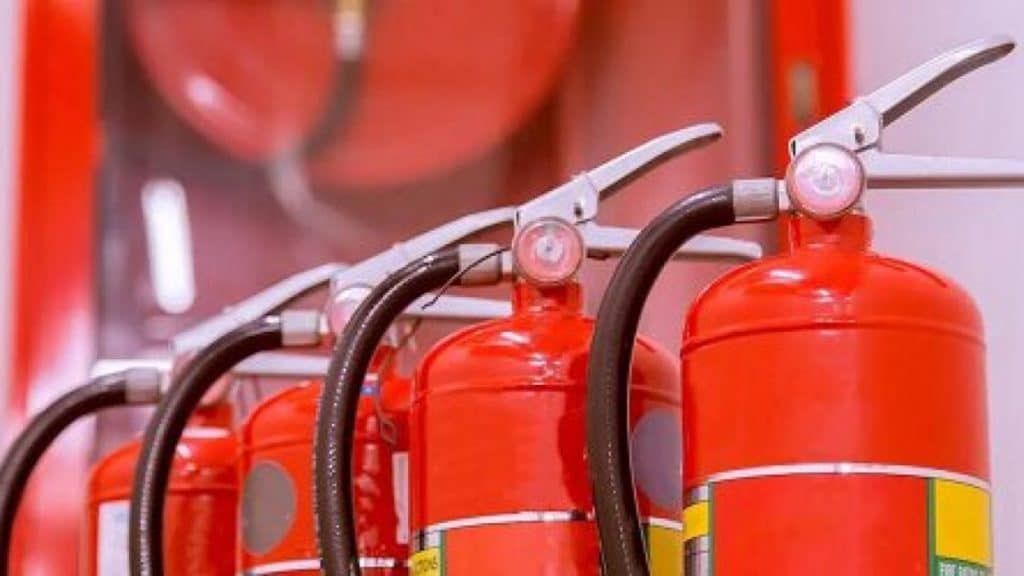A fire extinguisher can save the lives of people if any fire emergency occurs. This extinguisher is your line of defense against disaster, wherever you are. This article will provide you with the basics about firefighting apparatus, including their classes, functions, and the need for routine checkups. For property owners and vehicle owners who want to purchase an appropriate type of fire extinguisher and keep it operational, this essay contains useful information.
Types of Fire Extinguishers
The category of fire extinguisher matches the type of flames it was designed for. Common examples include water, foam, dry powder, carbon dioxide (CO2), and wet chemical fire extinguishers. Wood and paper are involved in ordinary combustible Class A fires, making water-based extinguishers suitable for such cases. Equally significant are foam extinguishers, which can be used against both Class A and B fires, allowing them to be applied in many settings comfortably, unlike others meant for specific purposes only. Additionally, there are powdered extinguishers that can address any type of danger, including flammable gases, among other things, while CO2-based extinguishers are more often used in electrical fires. Wet chemical types are mainly limited to kitchens where cooking oils burn. Notably, each type has markers specifying what kind of flames they suppress, allowing people to make the correct choices within seconds during emergencies.
Fire Extinguishers in Vehicles
Vehicles, whether private or commercial, can easily catch fire, so having the right fire extinguisher ensures safety all the way. In the UK alone, approximately one hundred thousand vehicles catch fire every year, and most accidents could have been avoided by using fire extinguishers. These include dry powder and foam extinguishers designed for vehicles, which can be obtained from reputable suppliers, such as Seton.co.uk. They are small-sized, making them handy all the time. Moreover, they can deal with the most common vehicle fires, such as those caused by petrol, oils, or electric faults. A reliable fire extinguisher in a car not only prevents fire incidents from getting worse but also allows time before help arrives. For instance, safe storage areas involve securing it below the driver’s seat to facilitate easy access during emergencies.
Uses and Applications
Being cognizant of what each kind of fire extinguisher is used for effectively enhances fire safety. For example, water-based extinguishers should never be employed on electrical fires due to their conductivity, which could result in a potentially fatal shock. Conversely, foam types are appropriate when putting out liquid fuel like petrol or oil, though they have the potential to damage electrical items lying around. Unlike other types that could potentially disintegrate gases and combustible metals found in industrial settings, dry chemicals are preferred there in most cases. On the other hand, carbon dioxide extinguishers are more frequently seen at home or in the workplace for use on electrical fires since no residue is left after use. Kitchens would opt for wet chemical extinguishers as they target cooking oils specifically. Knowing where fire extinguishers should be used for each group of fire extinguishers helps minimize the chances of injuries and damages caused by fires.
Fire Extinguisher Maintenance
Keeping your fire extinguisher in proper condition and ensuring it retains its operational status is challenging. It must be checked regularly to ensure it will work whenever needed. Most fire extinguishers last for five to fifteen years, but they still require professional inspection on an annual basis. The yearly review includes the examination of worn-out parts, such as the pressure gauge or nozzle. Additionally, shaking a dry powder extinguisher helps prevent the settling and compression of the powder. In commercial settings, there may be mandatory schedules for maintenance checks and the disposal of expired or damaged extinguishers. Adequate servicing ensures your equipment’s efficiency and also avoids possible legal issues in case of any emergency fire outbreaks.
